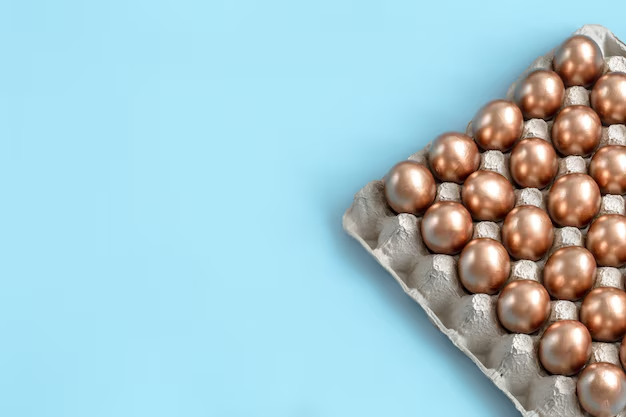How Long Can You Safely Store Boiled Eggs in the Refrigerator?
Boiled eggs can be a convenient and nutritious snack, but like all food, they have a limited shelf life. Knowing how long you can store them in your refrigerator ensures they remain safe to eat and delicious. Let's explore the nuances of storing boiled eggs and get some practical insights into making the most of this inexpensive, versatile food.
🥚 Why Boiled Eggs Are a Popular Choice
Boiled eggs are favored by many for their simplicity and nutritional value. They're rich in protein, vitamins, and minerals, making them an excellent option for breakfast, snacks, or to add to salads and other dishes. They're also easy to prepare in bulk, which is why understanding storage guidelines is crucial for safe consumption.
Boiled vs. Fresh: What's the Difference?
Before diving into storage specifics, it’s essential to understand that the boiling process changes the egg, both inside and out. While fresh eggs have a protective coating called the bloom that helps keep them fresh, boiling removes this, thus changing how long the egg can be safely stored.
🗓️ How Long Are Boiled Eggs Good For?
On Average: Boiled eggs can typically last in the refrigerator for about one week. This timeline ensures they remain at their optimal flavor and safety levels. However, several factors can modify this timeline, which we'll discuss further.
Factors Affecting Shelf Life
Several elements can impact how long your boiled eggs stay fresh:
- Storage Conditions: Eggs should be stored in a refrigerator at or below 40°F (4°C).
- Egg Preparation: Proper handling and cooking can also influence shelf life.
- Peeling: Peeled eggs may not last as long as those stored with their shells intact.
🤔 How to Store Boiled Eggs Properly
- Keep Them Cool: Place boiled eggs in the refrigerator as soon as possible after cooking. Avoid leaving them at room temperature for more than two hours.
- Use an Airtight Container: Store the eggs in a covered container to limit exposure to air, which can lead to odor absorption and drying out.
- Avoid Cross-Contamination: Separate boiled eggs from strong-smelling foods or potential contaminants.
🚦 Signs Your Boiled Eggs Are No Longer Safe to Eat
While boiled eggs have a general shelf life of about a week, they might go bad sooner due to various reasons. Here are signs to watch out for:
- Odor: A sulfur or rotten smell is a strong indicator that an egg is no longer safe.
- Discoloration: If the yolk appears greenish or gray, it might be overcooked but not necessarily spoiled. Focus on other spoilage signs.
- Texture: Slimy or unusually chalky texture may indicate spoilage.
🧊 Peeling Considerations: Shell On vs. Off
- Unpeeled Boiled Eggs: Keeping the shell on offers an extra layer of protection and helps them last up to a week in the fridge.
- Peeled Boiled Eggs: These are more prone to spoilage and should ideally be consumed within three days. To extend their life, store them in a container of water in the fridge, changing the water daily.
Storing Boiled Eggs for Extended Periods
While refrigeration is suitable for short-term storage, what if you need to keep them longer? Here are a few methods:
🥶 Can You Freeze Boiled Eggs?
The short answer is no, you shouldn't freeze boiled eggs whole. Freezing can cause the whites to become rubbery and unappealing. However, you can freeze the yolks for up to three months. Simply mash and store them in an airtight container.
Practical Tips for Making the Most of Your Boiled Eggs
Here's a handy list of tips and tricks for keeping your boiled eggs fresh and tasty:
- Labeling: Write the date of boiling on the container for easy tracking.
- Plan Ahead: If you know you won't finish your eggs within a week, consider cooking fewer next time.
- Creative Uses: Use older boiled eggs in recipes where texture isn't as critical, such as egg salads or deviled eggs.
🍳 Egg-cellent Culinary Ideas
Boiled eggs aren't just for eating plain. Here's how you can integrate them into your meals creatively:
- Salads: Slice them into salads for added protein.
- Breakfast: Pair with avocado toast for a nutritious start to your day.
- Snacks: Sprinkle with salt, pepper, or spices for a simple yet tasty snack.
- Sandwiches: Chop and add to sandwiches for a gourmet touch.
Key Takeaways: Keeping Your Boiled Eggs Fresh and Safe
Here's a concise summary to help you remember how to store and enjoy boiled eggs safely:
- 🕒 Shelf Life: Approximately one week in the refrigerator.
- ❄️ Storage: Always refrigerate promptly within two hours after boiling.
- 🧊 Peeling: Unpeeled eggs last longer than peeled ones.
- 🚨 Check for Spoilage: Discard if you notice odor, discoloration, or texture changes.
Boiled eggs are a hearty and versatile food choice, ideal for meal prep and snacking. Proper storage is key to maintaining their quality and safety. By following these guidelines, you can confidently enjoy your boiled eggs and avoid unnecessary waste.
Incorporating boiled eggs into your diet doesn't just bring convenience but also improves your overall nutrition. Stay mindful of their storage requirements, and you’ll have a reliable source of protein and other essential nutrients right at your fingertips.

